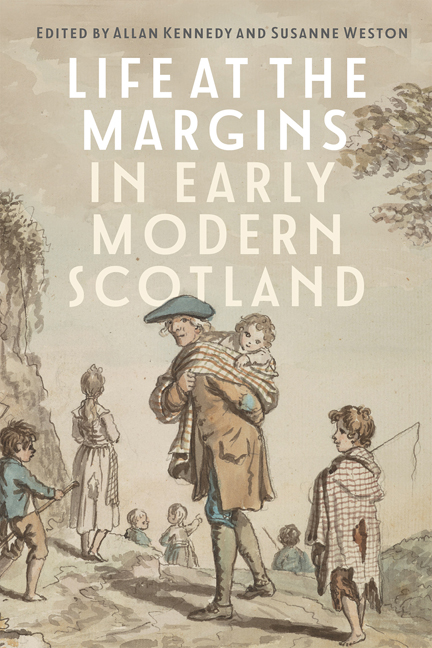4 - Burgesses on the Edge
Published online by Cambridge University Press: 08 May 2024
Summary
I have little hopes of success unless some Respectable Characters who have had an oportunity of knowing some thing of those I have come of, and of my former life, interest themselves on my behalf.
These words were part of a letter sent in an unsuccessful attempt to avoid the gallows and the ‘Ignominious death’ he so feared by the infamous eighteenthcentury Edinburgh housebreaker and thief, William Brodie. Brodie wrote two such letters from the confines of Edinburgh's tolbooth prison, where he was kept ‘in the Iron Room and in Chains’, with both letters aiming to use his social connections and former standing in Edinburgh's burgess community to have his sentence commuted to life transportation to Botany Bay. Born the son of the well-connected burgess Francis Brodie, young William benefited from an enviable start in life. He would go on to be elected deacon of the wrights’ guild in Edinburgh, a prestigious position affording him status, connections, respectability, and the ability to afford commodious accommodation in a ‘tenement in Horse Wynd … a substantial building, well furnished’. Brodie, it would seem, had almost everything one would need to enjoy a comfortable lifestyle in eighteenth-century Edinburgh, but, driven by the excesses of his own behaviour, he suffered the miserable end of a common thief. Brodie's duality in being a respectable burgess by day and common thief by night so shocked society that the proceedings of his trial were in print even before he went to the gallows.
As Deacon Brodie, William was a powerful and influential figure, the head of an incorporated guild, benefiting from economic, social, and political privileges afforded him by his title. Prior to his discovery, the then unknown night-time housebreaker and thief was the scourge of Edinburgh's society. Brodie, then, was operating on two levels, making him simultaneously both central and peripheral to society. Some authors have argued that Brodie's story was the inspiration for Robert Louis Stevenson's Strange Case of Dr Jekyll and Mr Hyde, although that case cannot be proven. His story continues to fascinate to this day, and the modern-day tavern on Edinburgh's Lawnmarket which bears his name is a regular stopping point for many tour guides and visitors.
Brodie of course is an example of extremities, an individual at the top of his profession yet given over to a secret criminality to support his excessive lifestyle.
- Type
- Chapter
- Information
- Life at the Margins in Early Modern Scotland , pp. 62 - 78Publisher: Boydell & BrewerPrint publication year: 2024

